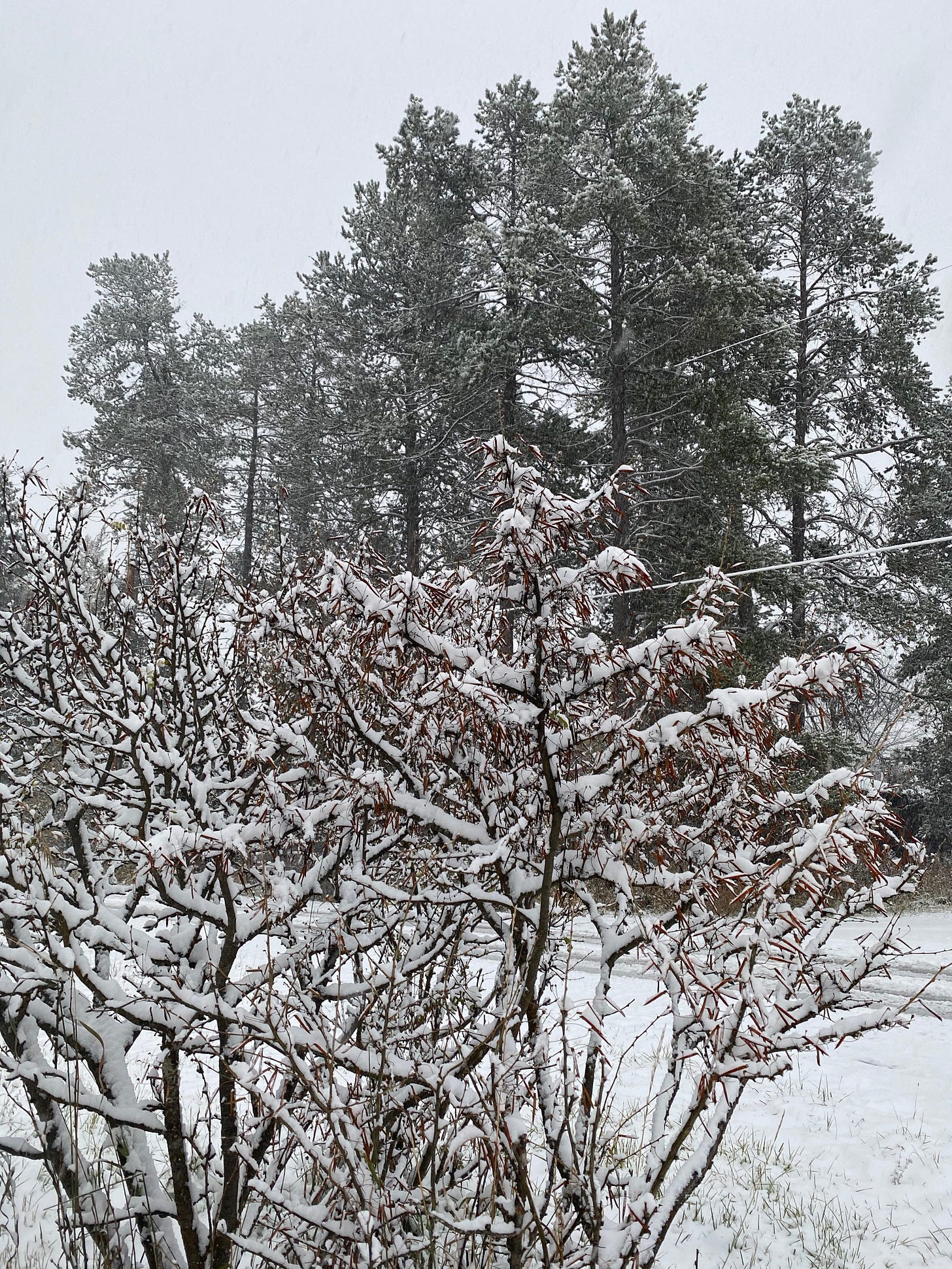
“The most important work today, the action most needed to be taken by each of us, is work across boundaries, across differences. . . . Anything that gets in the way of natural, compassionate, unconditional loving relationships and interactions is artificial.” —Robert Atkinson speaking on the Love (and Revolution) podcast in 2017
I didn’t manage to post anything yesterday partly because I gave myself the day off after a week feeling horribly stuck in the formlessness that defines so many of our days right now, and in part because I couldn’t find a quote I really wanted to fit with this photo. I read Fredrik Backman’s Us Against You (sequel to Beartown and just about as good; I hope he does a third with Alicia as the main character) and thought about using some of the opening lines because it’s such an excellent book and I inhaled hard when reading the paragraph about resenting other people simply for the fact that you need them. Backman is Swedish, but the sentiment felt resonant for much of why America can’t seem to move forward. The ways in which he portrays Beartown and its residents feel familiar, either from my childhood, or from where I live now—a liberal-leaning small Montana town in an extremely conservative county. Insult and offense are raw and constant and everywhere. As if anything from clean water to public health is an assault against . . . what? The words are always “freedom,” “liberty,” “America,” but none of that means anything. It’s just identity.
I wrote in a non-public forum recently that one of the biggest things I’m struggling with right now is hanging onto empathy in the face of so many forces willing to discard lives and real freedoms in the name of either power or identity. I know I’m not alone in that frustration. When our county commissioners refuse to enforce any mask mandates while the hospital is pushed beyond its capacity to treat coronavirus patients and my friends and family who work in frontline jobs are constantly at risk, it’s hard to feel empathy for those who refuse to lead due to mistaken loyalty to a conservative identity. I keep trying because what other option do we have? Nobody wins when everyone is angry. Maybe one of my tasks is to protect space for anger for those who have a greater right to it.
My formless days are fortunate days. I am hyper-aware of that, especially as I watch my sister go off to a customer-facing job she doesn’t have a choice about every day. And yet no matter how much structure I inflict on our household—math at 9:30, practice music, Skype with grandparents, read chapters, exercise—the malleable squishiness of time is affecting everyone. I wonder what our children—not just mine; everyone’s—will take from this time, if as adults they’ll yearn for structure while prioritizing social contact after a year or so battling loneliness in childhood.
It’s been rough. It will likely get rougher. Take care of one another.
—-
Stuff to read or listen to:
The joys of walking at night.
Forget self-driving cars. The automated robot future will look very different, and might help cities adapt more flexibly to the shock of pandemics: “Flexible density . . . recognizes the existential nature of the threats that cities face in the 21st century, and that the static way we’ve been thinking about resilience to date may not be enough.” “The Self-Driving Car Is a Red Herring,” by Anthony Townsend in Nautilus.
FUN! Stacey Abrams interviewed on the Star Trek podcast The Pod Directive.



How much do we hear the words “freedom,” “liberty,” “America,” from the very poor?
Thank you, Antonia. This column, like many of your others, is not only food for thought but also a balm.